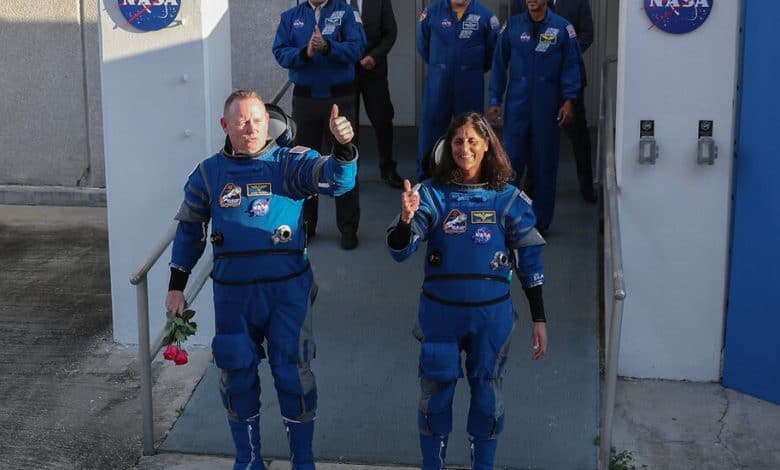NASA Astronauts to Wait Another Week for Boeing Starliner Launch

Boeing’s Starliner spacecraft, which was scheduled to take two NASA astronauts to the International Space Station on May 6, will remain on the ground for at least another week as engineers chase down a small helium leak.
The launch, which will aim to demonstrate a vehicle that would give NASA an additional option for carrying its astronauts to orbit, is now scheduled for June 1 at 12:25 p.m. Eastern from the Cape Canaveral Space Force Station in Florida. Additional opportunities to launch are available on June 2, June 5 and June 6.
The shift in timing adds weeks of delays to a project that is already years behind schedule. Officials from Boeing and NASA said they needed the time to understand the problem and develop workarounds.
On May 6, the astronauts Butch Wilmore and Suni Williams were already strapped in the Starliner when the launch was called off because of a malfunctioning valve in the second stage of the Atlas V rocket. That problem was unrelated to the Starliner capsule, but then engineers spotted a small helium leak in the Starliner’s propulsion system.
Over the next few days, the valve on the Atlas V was successfully replaced.
The helium leak turned out to be thornier. It was traced to a seal on a helium line leading to one of 28 small thrusters known as reaction control system engines. “Much like you would have on any piece of your plumbing at home, a faucet or anything like that,” Steve Stich, the manager of NASA’s commercial crew program, said during a telephone news conference on Friday. “There’s a seal that keeps that interface tight.”
Helium, an inert gas, is used to push propellants to the thrusters, and if too much helium is lost, the thrusters may not work properly.
